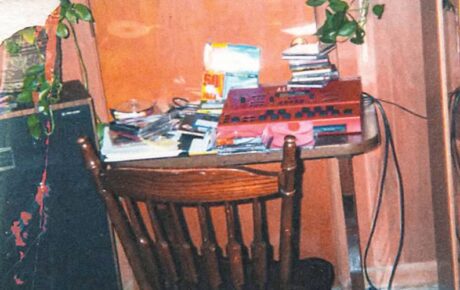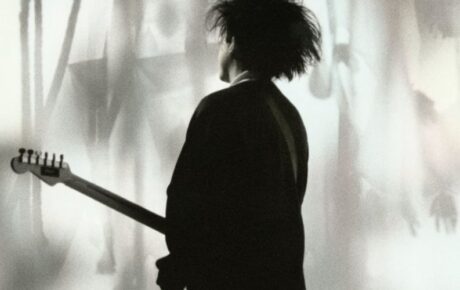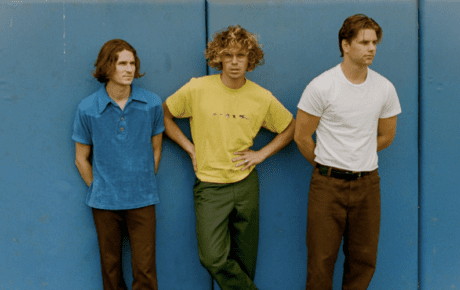The death of Bob Marley in 1981 at the age of 36 prompted an outpouring of grief around the world. In Jamaica, a congregation of 6,000 people mourned the loss of the Honourable Robert Nesta Marley, OM (Order of Merit) at a state funeral ceremony in the National Arena. “He is part of the collective consciousness of the nation,” Prime Minister Edward Seaga declared in a eulogy to the singer who, he said, had “left an indelible imprint.”
In the UK, “No Woman No Cry” re-entered the chart shortly after Marley’s death, peaking this time at No.8. But it was to be two years before Island Records released Confrontation, the first and best of Marley’s posthumous “new” albums, on 23 May 1983. The length of time taken to bring the project to completion reflected the attention lavished on the album by Island supremo Chris Blackwell who, together with contributions from the Wailers and the I-Threes, compiled and mixed the tracks, most of which had originated as unreleased demos and recordings made during the two or three years before Marley’s death.
Marley had settled on the title and tone of the album before his demise. According to his biographer Timothy White, the singer had envisioned Confrontation as the last instalment of a consciousness-raising trilogy begun with Survival (1979) and continued with the similarly political musings of Uprising (1980). The cover artwork of Confrontation by Neville Garrick, which depicted Marley astride a white horse driving a lance through the heart of a dragon, had been Marley’s idea, and was taken to be symbolic of a mortal blow being struck by the Rastafarian superstar in his never-ending battle against the beast of Babylon.
The album revisited some familiar themes, in particular, that of the power of music to bring unity and slay the dragon of oppression, as expressed in “Chant Down Babylon”, “Jump Nyabingi”, “Rastaman Live Up!” and “Trench Town”. There were also more calls to celebrate the life and teachings of Jah the Almighty in “Give Thanks And Praises” and “I Know”, the latter released as a 12-inch disco-mix in Jamaica. The album’s big international hit was “Buffalo Soldier”, which shone a light on the little-known (at the time) history of the US Cavalry regiments staffed by African Americans who fought in the 19th century to subdue the indigenous Indian tribes (mainly Apache and Cree). “Stolen from Africa/Brought to America/Fighting on arrival/Fighting for Survival,” Marley sang in a tone that both mourned the predicament and celebrated the steely determination of these black men, uprooted from their African homeland and pitched into an ongoing life-or-death battle “in the heart of America”. Written by Marley and N.G. Williams, better known as the reggae DJ and singer King Sporty, “Buffalo Soldier” was a bold spiritual statement set to a deceptively catchy tune which reached No.4 in the UK, the highest-placed single (outside Jamaica) of Marley’s career.
Confrontation was released ten years after Catch A Fire. During that decade Marley and the Wailers had released ten albums and taken reggae music from the backstreets of Trenchtown to the biggest stages and music charts of the world. In so doing Marley had changed the face of popular music – or, more specifically, changed its sound, rhythm and vocabulary. In the UK, Marley had delivered reggae from obscurity (and an unfortunate association with skinhead bootboy culture) and placed it firmly in the heart of the pop mainstream. By the time of his death, homegrown reggae bands such as Steel Pulse and Aswad had become mainstays of the live circuit, while UB40 had emerged as the first English reggae-pop group. Punk and new wave acts, notably the Clash and the Police, had incorporated reggae rhythms and other stylistic devices on their journey from the London pub circuit to chart success in the UK, the US and further afield.
Like Jimi Hendrix before him, Marley revolutionised popular music without living to see the full fruits of his incredible legacy. Since his death, Marley’s music has sold in monumental quantities. The greatest hits compilation, Legend, released in 1984 – the year after the launch of the CD format – has sold 15 million copies in the US, where it remains the second-longest listed album in the history of the Billboard chart (behind Dark Side Of The Moon). Worldwide, Legend has sold more than 25 million copies, making it, comfortably, the best-selling reggae album ever released and, a strong contender for the greatest one-artist compilation album of all time.












